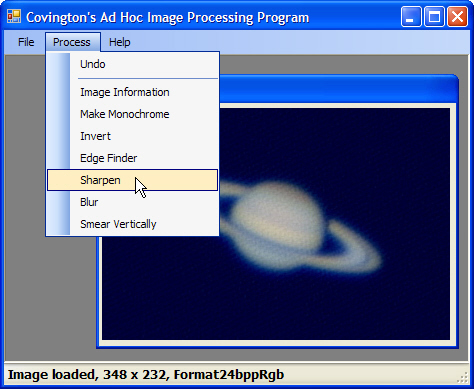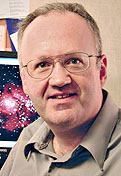 |
|
|

BOOK SALE - I'm selling off some scholarly books via Amazon Marketplace. Have a look!

|
2007
March
29-31
|
Minimum retail prices?
As Jeff Duntemann notes today,
the Supreme Court
may overturn
the 1911 law that forbids manufacturers from setting a minimum retail price (fixed price,
"fair trade" price) for retailers selling their products.
The motive is to solve the increasing showroom problem.
People go to a local store with a good showroom to look at a product,
then order it online at a lower price.
Either that, or in every town, one big discount store beats everybody's prices.
Jeff thinks — and I agree — that changing the law would help
redistribute power to smaller, independent merchants.
Should the change be made? I don't know the legal arguments, but here are a few thoughts:
- It's easy to get mixed up about which is the side of freedom.
Free pricing or freedom to set minimum prices?
Actually, the latter.
- Manufacturers don't have to set a minimum price even if they're
allowed to. If they'd rather have different retailers selling for different
prices, that's their choice.
- It seems to me that as long as there isn't a conspiracy between manufacturers,
this is not an antitrust issue. Suppose Canon adopts fixed pricing.
Canon still has to compete against Nikon and Pentax, which might not adopt
fixed pricing. And so on.
- Prices would go up, but perhaps not substantially, because of competition.
Wholesale prices might actually go down, at least for small-volume merchants,
because the manufacturer has to price the product low enough to sell it, and also has
to allow every merchant a decent markup.
I know I'm not altogether happy that all books now seem to come from Borders or Barnes & Noble
and all audio gear seems to come from Best Buy or Circuit City.
This seems to be good for the consumer, until you see what it does to selection.
Particularly in the book industry, what you can get is determined, ultimately, by just a couple
of corporations.
For really expert commentary on this issue
see Harvard economist Greg Mankiw's blog.
Permanent link to this entry
Do Christians believe in the Rapture?
If you've heard of the
Left Behind series of Christian thrillers, then you've
also heard of the doctrine of the rapture, which states that, according to
Biblical prophecy, the faithful
will be taken up into heaven
an appreciable time (1000 years?) before
the Second Coming of Christ and the end of the world.
But did you know that this
is controversial among Christians?
The position I've just sketched is called
premillenialism
and has a history of ups and downs; it has only been dominant since the 1800s.
A much older and more widely held interpretation of the Bible is amillenialism, which
says that, basically, the end of the world happens all at once, without a 1000-year intermission.
(A writer for Wikipedia says the early church was solidly premillenial, but
this scholarly report
from the Lutheran Church — Missouri Synod traces the Left Behind eschatology
only to 1830. Deeper down, one of the Biblical issues is whether the book of Revelation
foretells a list of events in sequence, or is rather a set of scenes that make the
same points in different ways, not in a strict order.)
I hasten to add that it's perfectly possible to be a good premillienalist and not
be fond of the Left Behind books.
A lot of the problem is that people are failing to distinguish Biblical teaching from fiction,
especially where current international politics is involved.
The books are about a good fight, not deep spirituality.
That's OK if they're just for entertainment, but not everybody draws the line in the right place.
Permanent link to this entry
End of month
Considerably more dubious than Left Behind is this new Japanese product,
toilet paper for astronomers. As usual, the mind boggles.
To further boggle the mind, Cathy refers me to
Halfbakery, a repository
of half-baked ideas for inventions.
I particularly like the
autonomous, migrating traffic cones
which are programmed to roam around and gather at the edges of potholes.
It reminds me of the
Valley of the Shmoon.
A very busy time is coming up, so I'm closing out the month early.
See you in April!
Permanent link to this entry


|

|
2007
March
28
|
Hail, the other Columbia!
A correspondent points out that there is yet another Columbia,
the British one, which is Canada's westernmost province,
once the site of a pig war.
Also north of the border,
the
tainted dog food has sickened
not only numerous dogs, but also, apparently,
at least one human,
who was showing her dog that it was OK to eat.
Permanent link to this entry


|

|
2007
March
27
|
Hail, Columbia!
From 1789 to 1931 our national anthem was not "The Star-Spangled Banner" but
"Hail, Columbia!" —
a rousing song that I had never heard until two days ago.
(Well, actually, I must have heard it as unidentified ceremonial music, since
it is played when the Vice President makes an entrance.)
Columbia is of course a poetic name for America; it's what our country
would have been called if it were named for Christopher Columbus.
Colombia (with an o) is the same name in Spanish and is a country
in South America.
Some people can't tell them apart. The names, I mean, not the countries.
By the way, "The Star-Spangled Banner" must deserve some kind of award for
longest series of relative clauses in a song lyric.
Probably not one schoolboy in ten grasps the sentence structure.
Permanent link to this entry


|

|
2007
March
26
|
New gallery
I've made major, long-overdue updates to my
online astrophotography gallery.
All the pictures have previously appeared in the Daily Notebook,
but now you can see dozens of pictures in one place. Enjoy!
Permanent link to this entry


|

|
2007
March
25
|
Subprime again
Those who are interested in the
subprime-mortgage mess
may find it interesting to read
these remarks by Senator Dodd
(more here)
and
this essay about unintended consequences.
I should explain that the reason I keep going on and on about
irresponsible lending is not sour grapes.
None of these sharky practices have ever been done to me.
In fact, during the height of the overlending era, I benefited
from some cheap credit.
But I care about other people too.
And I even care about indirect effects on me.
If banks lose a bundle on risky mortgages, then they're going to have
to charge more for the services I actually use.
If houses sit vacant and abandoned, they'll turn into public
nuisances.
If a huge number of people's purchasing power is suddenly cut,
we risk a recession.
Why were adjustable-rate mortgages ever a good idea?
I can understand why you'd want one during a temporary period of
abnormally high interest, as in the late 1970s.
But during a period of abnormally low interest, all you're
doing is setting people up for failure.
Who can reasonably expect to be able to make a house payment 2 years from now
that is 50% higher than they can afford today? Anybody?
Permanent link to this entry
Handy software product of the day: Nero SDK
Programmers take note:
There's an API for Nero Burning ROM.
You can write programs that communicate with your locally
installed copy of Nero to create CDs and DVDs.
You can create complex DVD projects as simple XML files
which you feed to the DVD-burning routines.
Win32 and C# examples are provided;
download everything, free, here.
Permanent link to this entry


|

|
2007
March
24
|
Short notes and a busy week
Things are getting busy here as we're in the home stretch to the end of
the semester, so Notebook entries are probably going to be sparse.
My new dual-core computer is serving me well.
It seems a pity that we need a dual-core CPU to get around the limitations
of Windows and especially the antivirus package — but it really makes
a difference that no program can have more than 50% of the computer no
matter how bogged-down it gets. Even F-Secure Antivirus can't bring this
computer to a stop.
Yesterday I removed and re-created my Windows domain account (keeping the files,
of course). Why? Because this account was haunted by the
"project location not fully trusted"
error message in Visual Studio,
even though other domain accounts on the same PC were not.
All the usual fixes didn't help. On the previous PC I had implemented some kind of
awkward workaround, I don't remember what.
This time I simply got a new account.
I think that was a good move. The old account dated from 2000 and had all sorts of junk in its
registry. There's no telling what I got rid of.
Interesting things I've seen on the Web lately:
Recent (1990)
spelling
reforms in French, turning some accent marks around and changing oignons to
ognons (thus invalidating every French restaurant menu in the world). (Would an onion by any
other name smell as sweet, er, acrid?) Not everybody is going along with them.
Recent (1996)
spelling reforms in German.
These languages won't stand still for me to learn them!
The Germans scrambled the rules for using ß (the ss digraph), just when I was getting
them straight in the first place.
They also determined that it's OK to have 3 of the same letter in a row
in words like Schifffahrt (ship voyage) or Schlossstraße (Castle Street).
An early Canadian postmaster (well, New Brunswick, which wasn't Canada at the time)
who arranged to
get his own picture
printed on a stamp instead of Queen Victoria's.
A skeptical chiropractor.
An encomium on earplugs
by someone who thinks they were invented in 1967.
Maybe a particular kind was invented then, but haven't people been putting things
in their ears since prehistoric times?
A funny video about a telescope lens.
(No, they don't really assemble telescopes this way.)
Permanent link to this entry


|

|
2007
March
23
|
Taking apart "The Secret"
It's more than a get-rich-quick scheme.
Jack Canfield, author of the Chicken Soup books,
is now backing a movement called The Secret that has
attracted intellectual leaders as prominent as Oprah Winfrey
(don't laugh, Oprah is a lot of people's intellectual leader).
"The Secret" is a movie,
a book,
and a web site,
all run by someone named Rhonda Byrne
and revolving around a "discovery" or revelation called
the Law of Attraction, not original with her, which claims that
you can acquire things, or make things happen, by thinking about them.
Now in one sense this is obviously true; your thoughts affect your behavior,
and your behavior affects what you acquire, or cause to happen.
And there is a valid psychological insight — people are happier when they
think about things they want than when they think about things they don't want.
So far, so good.
But "The Secret" apparently claims much more — that thoughts can alter
the physical world directly, working literal magic.
This is supposed to have something to do with gravitation, or quantum physics, or something of the sort.
I haven't seen the movie, but reviewers tell me it has
a scene where
"a kid who wants a red BMX bicycle cuts out a picture in a catalog,
concentrates real hard, and is rewarded with the spiffy two-wheeler"
(Time Magazine),
and "The Secret" has followers who are, even now, blogging testimonials of similar rituals.
That kind of magic is certainly a popular New Age doctrine,
and I cannot imagine how, in any sense, it could possibly be true.
Besides foolishness, "The Secret" obviously has another dark side —
it's about selfish greed. It's all about getting what you want, not about bringing
your desires in harmony with the will of God, the needs of your fellow human beings,
or even the laws of nature.
This implies a third dark side: all your misfortunes are your own fault,
for not meditating hard enough on your desires. At least, that follows logically
from the Law of Attraction, although as far as I can tell it's not emphasized.
Presumably the citizens of New Orleans and of South India failed to focus on hurricane-free weather
and tsunami-free seas. Too bad for them.
On top of that are false historical claims.
Because they're not around to deny it,
Byrne claims support from
"Aristotle, W. Clement Stone, Plato, Isaac Newton, Martin Luther King, Carl Jung, Victor Hugo,
Henry Ford, Ralph Waldo Emerson, Thomas Edison, Albert Einstein, Robert Collier, Winston Churchill,
Andrew Carnegie, Joseph Campbell, Alexander Graham Bell, Ludwig Van Beethoven, Charles Fillmore,
Wallace D. Wattles, Thomas Troward, and Charles F. Haanel"
(I'm quoting Wikipedia).
One thing's for sure. The makers of the movie are getting rich.
For detailed critiques of "The Secret" see
Jeffrey Ressner in Time,
Karin
Klein in the L.A. Times (see especially the last 2 sentences),
and
the blog of
theologian John Stackhouse.
(An an editorial by Roman Catholic critic Emily Stimpson
here,
quoting a number of rather sharp theologians.)
I don't plan to give it any further attention here.
Except maybe adding more links to pointed critiques.
Permanent link to this entry


|

|
2007
March
22
|
Dollar coins
 I got a few George Washington dollars
at the bank today.
Then, to my delight, I was able to use some of them in vending machines.
Apparently the vending machines of the world, or at least of the University,
have quietly been upgraded to take dollar coins.
(In addition to the presidential coin series, the Sacagawea dollar is still in production.)
I got a few George Washington dollars
at the bank today.
Then, to my delight, I was able to use some of them in vending machines.
Apparently the vending machines of the world, or at least of the University,
have quietly been upgraded to take dollar coins.
(In addition to the presidential coin series, the Sacagawea dollar is still in production.)
I'm going to go back for more.
I think dollar coins are a great idea.
I'd much rather handle coins than dirty paper $1 bills.
The design of the Washington dollar does not strike me as great art.
It's rather flat and reminds me more of
commercially produced medallions
than of the fine traditions of U.S. coinage.
But they have to do more than 40 of them, for all the presidents, in the same style,
and that may be why they've chosen a design that is rather pedestrian.
Notice that this coin says "$1" (not "one dollar").
Is this the first modern numeral (for the denomination)
that has ever appeared on a U.S. coin?
(I can remember two Roman numerals, the V on the Liberty head nickel
and the III on the 3-cent piece.)
Permanent link to this entry
Miscellany
 Double-nibbed fountain pen:
Melody's father,
Jim Mauldin,
recently gave me a
Lanbo double-sided fountain pen
from China.
It has fine and medium nibs together. Useful!
Double-nibbed fountain pen:
Melody's father,
Jim Mauldin,
recently gave me a
Lanbo double-sided fountain pen
from China.
It has fine and medium nibs together. Useful!
If you get a phone call from the "fraud department" of your credit card company,
then even if they already know your credit card number,
don't talk to them.
Instead, call the number that is actually on the credit card.
The reason?
People who call you and already know your credit card number may be
identity thieves trying to get one last piece of the puzzle,
namely the confirmation digits on the back of the card,
or even just trying to confirm that the number they already got is real.
(Thanks to Bill Demetree for passing along a timely warning.)
Permanent link to this entry


|

|
2007
March
21
|
The dog- and cat-food scandal of 2007
Note: Some of the details about this incident are
uncertain, but the major news media agree about the main outlines. Please continue to read
other media as more of the story emerges.
 It has just transpired that
90 brands of pet food (each in several flavors) are actually the
same products, made in the same factory, subject
to the same recall.
It has just transpired that
90 brands of pet food (each in several flavors) are actually the
same products, made in the same factory, subject
to the same recall.
Some of these are labeled brands such as Iams and Eukanuba that have loudly trumpeted
their inherent superiority to other brands.
This smacks of false advertising.
A correspondent points out that there could
be some variations in the recipe for different brands affected by the same recall.
Thus, claims of superiority could be technically true. Also, Iams and Eukanuba make
other pet food products in their own factories.
But the more immediate problem is that dogs and cats have been dying
because of contaminated food, and the manufacturer's response to the
situation has been less than exemplary.
According to MSNBC,
the company first received reports of pets dying on February 20.
Apparently, they didn't have the product tested for contaminants right away.
What they did was
begin a "taste test" with about 50 animals.
What did they do then?
Watch the animals for the first sign of sickness?
Do blood tests periodically to try to detect and identify problems?
No, they waited until 10 of the 50 animals died.
(Aside from the cruelty issue, I would assume that a count of dead animals
is not nearly as informative
as a set of blood tests on a live one.)
And then, nearly a month after first hearing about the problem,
Menu Foods finally recalled the products.
The
invisible hand of market forces
is about to pummel somebody.
This is really a twofold scandal, contaminated food plus misleading advertising
(of identical products as "superior" brands).
Cathy and Sharon advise that
wheat is not good for dogs or cats in the first place —
they don't eat anything like it in a state of nature.
They recommend
Natural Balance
dog food, which is slightly more expensive
but is nutritionally complete.
Permanent link to this entry
A run on the bank?
Not quite a run on the bank.
But a BBC consumer advocate persuaded the Office of Fair Trading
(that's the British equivalent of the Federal Trade Commission)
to rule that that most of the overdraft fees
imposed by British banks
are too high,
and then the BBC published
instructions and a form letter
for people to use to claim their money back.
The result?
Banks are paying out millions of pounds,
and the end is not in sight.
Could something like that happen here?
Permanent link to this entry


|

|
2007
March
20
|
No, I don't want to be brainwashed, thanks
The author of
Chicken Soup for the Soul
(a book I am proud never to have read)
is now apparently peddling a
get-rich-quick scheme.
As usual, the mind boggles, but is not surprised.
Look at how many of other the links on
this site
promise to manipulate your emotions and
get you mildly out of touch with reality
in order to help you get rich
(or make you think you're going to get rich).
At least that's the way I read it.
I don't want that kind of "motivation."
I believe in
emotional intelligence
(at least the overall concept, if not any particular theory).
In fact, it's uncontroversial that the emotions are simply one of the
mind's ways of processing information.
Not all intelligence is verbal and explicit.
It follows that a person's emotions can be wise or foolish, depending on whether
they agree with the person's knowledge and a wise set of values.
Thus, I make a distinction between encouragement and training, in accordance
with reality, and "motivation" that is mere brainwashing.
I don't want to be made into a megalomaniac, or unrealistic optimist, or whatever
they're promising to do. I want to keep my feet on the ground.
Permanent link to this entry


|

|
2007
March
19
|
Saturn and Enceladus

Inspired by
Pete Albrecht's recent success imaging Saturn and its satellites,
I got this picture last night
with my ToUCam Pro video camera and 8-inch telescope working at f/20.
This is a stack of the best 1200 out of 1500 video frames.
Enceladus was vivid blue in the original image, and I desaturated it, as well as brightening it
separately from the planet.
It's a faint object (magnitude 11.8) and is actually white.
The blue color in my picture probably came from nonlinear response of the sensor to dim light.
Permanent link to this entry


|

|
2007
March
18
|
Image processing in C#
I have some image processing algorithms I want to experiment with, so as a platform
for trying them out, I've written an image processing program in C#.
You can download it here,
with source code for Visual Studio 2005.

I've kept things simple. The program works only with 8-bit RGB or monochrome images
and uses built-in GDI+ functions to the fullest.
For convenience in experimenting, the image can be accessed as an integer array of
pixel values (or three such, if you're working in color).
I have only one request. Please do not e-mail me asking for further help with
this program, unless you are one of my own students or clients. I can foresee the world
beating a path to my door...
Enjoy!
Permanent link to this entry
What they used to name babies
One of the best interactive graphics we've seen lately

The Baby Name Wizard is a web site with a remarkable
display of historical data on what people used to name their babies.
The stripes on the graph above are boys' and girls' names (blue and pink) in alphabetical order
from top to bottom.
The width of the stripe is the proportion of children with that name.
As you mouse over any stripe, you get additional information about it.
Here you see that Mary was extremely popular 60 years ago but not today.
Apparently, 2003 is the year of Emily and Jacob.
Permanent link to this entry


|

|
2007
March
17
|
The subprime-lending mess
Does the lending industry know what's good for itself or anyone else?
For the full version of this entry
click here.
A shorter version was posted here for a while.
Permanent link to this entry
More miscellany
Happy St. Patrick's Day!
As usual, the Atlanta newspaper ran a St. Patrick's Day Quiz that did not include any mention of the
fact that St. Patrick brought Christianity to Ireland. Cultural literacy, anyone?
Surprising bit of brain science:
This paper
is mainly a study of schizophrenia, but hidden in the results is a surprising tentative
conclusion: there's something addictive in cigarettes besides nicotine.
The researchers used a drug that blocks the effects of nicotine on brain and nerve cells.
The drug should have caused withdrawal symptoms in smokers, but it didn't.
The addictive substance appears to be something else.
Given the well-known level of
honesty of the tobacco industry, we might well ask, what?
A. H. Weinberger et al.
(2007).
Effects of acute abstinence, reinstatement, and mecamylamine on biochemical
and behavioral measures of cigarette smoking in schizophrenia.
Schizophrenia Research 91:217-225.
(To read the whole article you have to have a subscription or be at a library that has one.)
 Air cleaner: For several years my office has been plagued with an acrid, burnt smell
that comes and goes unpredictably.
The air conditioning technician thinks we probably have some
uncouth person who insists on smoking somewhere in our smoke-free building,
but I've never been able to track him down, and if the smell is tobacco
smoke, it's very stale.
It may be something that's been in the ducts for decades.
Air cleaner: For several years my office has been plagued with an acrid, burnt smell
that comes and goes unpredictably.
The air conditioning technician thinks we probably have some
uncouth person who insists on smoking somewhere in our smoke-free building,
but I've never been able to track him down, and if the smell is tobacco
smoke, it's very stale.
It may be something that's been in the ducts for decades.
So I've taken matters into my own hands: my office now has
one of these on the floor,
purring away, pulling particles and even molecules out of the air.
It's basically a Honeywell whole-house electronic air cleaner mounted in a box with a big, quiet fan.
We used it at home for a long time. It works.
Result? The air in the office is surprisingly dirty. It took only one day for the high-voltage plates
to become coated with something that looks like laser-printer toner (perhaps from the industrial-sized
laser printers at the other end of the building). I'm sure the air cleaner will help.
Permanent link to this entry


|

|
2007
March
16
|
Miscellany
New PC:
I'm getting a new PC at work,
a Dell Optiplex, 2.66 GHz, dual-core CPU, 4 GB RAM.
That is 558 times the clock speed and 16,384 times the memory of my first PC.
And twice as many CPU cores.
Best Buy hoopla:
There may be an innocent explanation for this, but if so, it sounds flimsy.
Reportedly,
customers who looked things up on www.bestbuy.com and then went into the store
found the prices higher;
then the store clerks showed them an identically arranged web site with
higher prices on everything.
The store clerks were apparently unaware of the difference.
The Attorney General of Connecticut — Mr. Blumenthal, perhaps the
toughest of our 50 Attorneys General — is on their case.
More here.
Permanent link to this entry
Foggy economics
Somebody has discovered
that about 40% of the population "lives from paycheck to paycheck" and
about the same number of people don't think they have enough
money to "live comfortably."
Query: What is the definition of "live from paycheck to paycheck"? Like most workers, I get
paychecks monthly. And although I have savings, I don't keep them in my checking account.
Does that mean I "live from paycheck to paycheck" as I count on each paycheck to pay the month's
bills? Is this a bad thing?
As for "enough money to live comfortably," don't a lot of people define "live comfortably"
as "live a little better than my present standard of living"?
Permanent link to this entry


|

|
2007
March
15
|
F-Secure FSSM32.EXE near 100% CPU
I'm one of many whose PCs are periodically hobbled by the background virus scanning
done by F-Secure Antivirus (FSSM32.EXE).
This software is issued to me by the University, and not using it (on this PC) is not
an option. Accordingly, here are a few tips for others who may also have to live with it.
(1) Get hold of Process Explorer,
install it, and run it at all times
(minimized to the taskbar) with administrator privileges.
(2) In Process Explorer, find FSSM32.EXE, right-click on it, and set its priority to Idle
instead of Normal. That will help it stay out of the way of other processes.
(Update: That may stop it from running altogether;
I'm not sure. I'll tell you if I find out any more.)
(3) Important:
If you have a collection of downloaded software and the installation packages
are large .EXE files, don't keep them on your hard disk.
Burn them to CDs and store them elsewhere.
The reason? Virus scanners have to check every .EXE file.
Due to a design flaw, FSSM32.EXE malfunctions and takes over the
CPU when it tries to scan an excessively large one.
By the way, I'm convinced that
present-day virus-checkers are barking up the wrong tree.
Back when there were only a few hundred viruses in circulation, it was reasonable to
scan the whole computer, looking for all of them.
That no longer works. There are too many, and some of them change themselves as they spread.
Instead, we should be detecting viruses by their behavior, as Vista does to a
considerable extent. (This is one reason
klutzily written software won't run under Vista.)
If a program uses the Internet without permission, or writes on files that only the operating
system should alter, or seems to be using the disk drive indiscriminately — then
it's probably a virus.
Detecting misbehavior is much less of a burden on the CPU than scanning the whole disk
constantly to look for viruses.
Permanent link to this entry
Strong-willed Windows Update
I seem to recall that this computer was set to download updates automatically but
ask me permission to install them.
This morning it greeted me with the message that updates had been installed, and
would I please reboot?
Hmmm...
Then F-Secure (FSSM32.EXE) insisted on chewing up a lot of CPU cycles checking the
System Restore files that were created by the update, presumably to find out if
I used to have a virus.
Permanent link to this entry
Nameserver capers
Last night, with no warning, Bellsouth took down the nameservers I was using (205.152.0.20 and
205.152.244.252). For unrelated reasons the University of Georgia nameserver that I use as
a backup, 128.192.1.193, was also inaccessible.
Unfortunately, I had the nameserver addresses hard-coded into my Linksys router, which gave them
out to all the PCs in the house via DHCP. So we all lost name service.
Eventually I was smart enough to delete the hard-coded numbers from the router, so that it would
receive a set of nameserver addresses from Bellsouth and pass them along to the PCs.
I disconnected the router from the Internet and reconnected it,
then "repaired" (disabled and re-enabled) the Internet connection on my PC so that it
would get the new data.
The new nameservers work fine, but the
disadvantage of letting Bellsouth tell us what nameservers to use
is that if Bellsouth's nameservers go down, we don't have a backup.
I'm going to see what happens next, because I have a hunch the outage was temporary.
Permanent link to this entry


|

|
2007
March
14
|
Pi day, diversity, and pseudoscience
Today is π day. (3.14, get it?)
More details here.
Economists' latest discovery: Not only do different people have different incomes, they also
do different amounts of work.
I'm talking about effort, not just results.
Several possible explanations are obvious. If you've only thought of one explanation, you aren't
working hard enough...
At any rate, read the last paragraph of the article for its political significance.
Different people want different things, and that's the problem with trying
to "equalize income" to impose
the same standard of living on all of them.
I also think different people, in different cultures, want different kinds of government.
The French seem to want to be regulated in a way that the British and Americans can't understand.
The British zeal for fairness is their greatest national virtue (which we Americans have
inherited). Plenty of European countries don't understand the American desire to be left alone.
That, in fact, is why it's good that we have 50 states.
Anything that's popular in Vermont seems loony to
the Texans, and vice versa. I'm in favor of this kind of diversity because it keeps everybody
from following the same bad idea at the same time. Unfortunately, the people who talk the most about
"diversity" are often dead-set against diversity of political opinions or tastes.
I finally found, online, Paul Thagard's famous essay about
why horoscopes are bogus.
It's not just that they don't seem to work; it's that their advocates
don't care how they might work, or how to make them better.
The same could be said (and I have said it) about some of the wilder theories about high-fidelity audio.
If a silver power cord will really make your amplifier sound better, then some important law of physics is
waiting to be discovered, because present-day physics says there should be no such effect.
But high-end audiophiles aren't looking for that law of physics.
They'll happily sell you a power cord for $1000, but they have no research program.
I think that's because they are selling you an effect that doesn't exist.
Permanent link to this entry


|

|
2007
March
13
|
Artificially intelligent marketing?
The following e-mail was actually sent to me yesterday by Amazon.com's computer,
which keeps track of who buys what books. In this case I think it tried to draw
a conclusion from an excessively small sample.
Dear Amazon.com Customer,
We've noticed that customers who have expressed interest in "Lunar and
Planetary Webcam User's Guide (Patrick Moore's Practical Astronomy
Series)" by Martin Mobberley have also ordered "Rat Jugular Vein and
Carotid Artery Catheterization for Acute Survival Studies: A Practical
Guide" by Angela Heiser. For this reason, you might like to know that
Angela Heiser's "Rat Jugular Vein and Carotid Artery Catheterization
for Acute Survival Studies: A Practical Guide" is now available. You
can order your copy for just $79.95 by following the link below. [...]
How many rat-catheterizing amateur astrophotographers are out there?
The mind boggles.
On the whole, I'm glad I'm not a rat.
Permanent link to this entry
Miscellany
Daylight Saving Time is supposed to
save energy, but now
there are reports that it will lead to
increased gasoline consumption
by encouraging people to drive around more in the evenings.
The financial industry seems to be discovering the obvious every couple of days.
Today's discovery: You can go broke
lending
money to people who can't pay it back.
You have to wonder what the lenders were thinking.
Permanent link to this entry


|

|
2007
March
12
|
Lunar eclipse of 2004 October 27

So far, this is perilously close to being the dullest month of Notebook entries I've ever written,
so today I'm endeavoring to remedy the situation.
Here is one of my film astrophotos, from three years ago, processed digitally.
What you see is a stack of two 8-second exposures of the lunar eclipse on Elite Chrome 100 pushed 1 stop,
taken at the prime focus of my Celestron 5, processed with RegiStax and Photoshop.
Compare it to the digital images here.
The digital images are sharper (no shutter vibration), but the film image may win as regards dynamic range.
Permanent link to this entry
Tau Canis Majoris Cluster

The star Tau Canis Majoris is surrounded by a star cluster that often goes unnoticed because the star
is so much brighter.
This cluster is also known as NGC 2362, Caldwell 64 (C64), and (if you use the object list
in my Celestial Objects for Modern Telescopes) Covington 28.
You're looking at a 5-minute exposure on Ektachrome E100GX pushed 1 stop, taken with an 8-inch
telescope at f/5.6. This was taken in 2004, about a month before this notebook began.
Permanent link to this entry
M31, stack of 5 images

Click for larger image
Here's my best picture yet of the Andromeda Galaxy (M31). This is a stack of 5 film exposures
taken in 2002, all on Elite Chrome 200, all with a Nikon 300-mm lens; they total about 2 hours
of exposure.
Permanent link to this entry


|

|
2007
March
11
|
Daylight lost
We're still busy going around and setting clocks.
Since there's nothing to read here,
read
this
collection of software engineering proverbs instead.
Also enjoy
this
story of legal bank robbery.
A man sued a bank for overcharges.
They didn't respond, so he got a default judgment.
Then they didn't pay, so he got a court order to send bailiffs to seize some of the bank's assets!
Permanent link to this entry


|

|
2007
March
9-10
|
Daylight Saving Malarkey
No time for a notebook entry today. I'm busy resetting the time on about 10 clocks
(4 of them in cars), and 6 digital cameras (not all of them mine).
The Windows computers and the cell phones will take care of themselves;
the VCRs may (I'm not sure whether they get their time signals by cable).
All this is to "save daylight" or even save energy? Give us a break.
Update, 10 p.m.: I reset 20 devices (clocks, cameras, etc., including a fax machine
and a thermostat).
Melody and the girls will probably do a grand total of about 6 more.
The VCR and DVD players are being left until tomorrow since they may receive the
time by cable. Or they may not.
Once we get everything stable, we'll have to look out for unwanted changes again
on the date when DST would normally have taken effect.
Permanent link to this entry


|

|
2007
March
8
|
Lively financial reading...
Another Senate committee has
grilled representatives of the credit card industry.
This time it's the
Senate Permanent Committee on Investigations,
which is part of the Committee on Homeland Security and Government Affairs.
The official report is here,
with transcripts of the testimony. I haven't digested all of it yet.
You'll recall that the Senate Banking Committee did something like this
back in January.
The issue was the same: predatory lending.
This time the Senators brought in a victim — a man whose $3200 credit card debt
had grown to $10,700 because of exorbitant interest and fees — and confronted him
with the CEO of Chase Bank. The bank gave the poor man $4400 back immediately.
By the way, is this why Citibank's credit card web site was malfunctioning and then went down
on Tuesday night? Were they implementing last-minute policy changes?
Citibank is the one whose policies have changed the most in response to the Senate investigations.
But they haven't changed enough.
Permanent link to this entry


|

|
2007
March
7
|
Of England, theology, and anointings
Minor update 1:30 p.m. March 7.
 This year's annual news booklet from Clare College, Cambridge, tells me I've outlived two
faculty members that I knew there.
One of them, Dr. John Chilton, was my tutor. For a graduate student, a tutor is simply someone who enrolls you in the college
and performs other minor administrative work for you, not teaching; that's how it happened that my tutor
was a metallurgist. I didn't know him very well, but he did tell me one amusing story of driving
around Mississippi with his wife in the 1950s, not understanding American race relations at the time,
and going to a motel
run by black people. They were glad to accommodate him — as a foreigner, he was apparently
outside the system of their expectations — but everyone felt slightly strange about it.
This year's annual news booklet from Clare College, Cambridge, tells me I've outlived two
faculty members that I knew there.
One of them, Dr. John Chilton, was my tutor. For a graduate student, a tutor is simply someone who enrolls you in the college
and performs other minor administrative work for you, not teaching; that's how it happened that my tutor
was a metallurgist. I didn't know him very well, but he did tell me one amusing story of driving
around Mississippi with his wife in the 1950s, not understanding American race relations at the time,
and going to a motel
run by black people. They were glad to accommodate him — as a foreigner, he was apparently
outside the system of their expectations — but everyone felt slightly strange about it.
The other faculty member who died last year was Arthur Peacocke,
the eminent scientist-theologian. In my time he was dean of the chapel.
That means he conducted an Anglican church service
in the chapel every Sunday, as well as other religious activities for students, as well as teaching
in the Faculty of Divinity. (Our choir director, by the way,
was John Rutter,
composer of the "Shepherd's Pipe Carol" that you probably hear every Christmas.
Clare College Chapel was an extraordinary place.)
Dr. Peacocke was an evangelical in his youth, then an unbeliever, and then turned back to Christ in
middle age. At the time I knew him, he definitely adopted an anti-evangelical posture; we students
thought of him as an extreme liberal whose religion was barely within the Christian fold.
I now think this was partly just the way he chose to present himself.
His real specialty was reconciling Christianity with evolution.
Much of his work was highly creative thinking that will take a century for everyone else
to comprehend and assess.
A key theme in Peacocke's work is that evolution is the "disguised friend," not enemy,
of Christianity. His reasoning is as follows. In the early 1800s, science was busy
getting people to view the universe as a
well-oiled machine that didn't need God at all.
Then Darwin came along and discovered that the mystery of divine creation was
still going on, right under our noses. That is, either God is nowhere, or God is
everywhere. Those are your choices.
And now, a bit of news about a completely different kind of churchman, Ted Haggard of Colorado Springs,
the superchurch leader recently disgraced by a sexual scandal.
Jeff Duntemann has blogged a portion of a news story that
apparently infuriated Haggard's flock, though it merely puzzled me.
The key point is that Haggard and his congregation, acting on what they took to be orders
from God, anointed the whole city (or at least, a lot of small parts of it)
using a garden sprayer full of cooking oil.
Well... prayer-walking is a practice I solidly support; it means simply walking through
a city and quietly praying for everybody there. But what was the oil for?
Jeff's impression is that these evangelicals, with no sacramental tradition to tell them
anything about anointing, seemed to think it would work like magic.
I'm not sure; I think they simply wanted to accompany their prayers with a physical act,
and they had no clear tradition telling them how to do so.
Is there any Biblical basis for anointing places rather than people? Or anointing people
without their knowledge or consent?
Sadly, most of the public doesn't realize that most evangelical Christians already consider
these larger-than-life media-circus megachurches to be a little odd.
Some of them do a lot of good, and some don't.
Permanent link to this entry


|

|
2007
March
6
|
Saturn returns in 2007
 Or rather, we return to Saturn's side of the Solar System.
I took this picture under rather mediocre conditions last night (March 5)
with an 8-inch telescope and a modified webcam.
The best 1000 out of 1800 video frames were selected,
stacked, and enhanced with RegiStax. Unfortunately, the air was unsteady,
and in order to bring out a decent amount of detail I had to perform so much
high-pass filtering that the image is very grainy.
Or rather, we return to Saturn's side of the Solar System.
I took this picture under rather mediocre conditions last night (March 5)
with an 8-inch telescope and a modified webcam.
The best 1000 out of 1800 video frames were selected,
stacked, and enhanced with RegiStax. Unfortunately, the air was unsteady,
and in order to bring out a decent amount of detail I had to perform so much
high-pass filtering that the image is very grainy.
Permanent link to this entry


|

|
2007
March
5
|
Short notes
Cultural literacy moment:
The Da Vinci Code is fiction, folks.
But people are starting to ask, in apparent seriousness,
how to locate the descendants of Jesus.
He didn't have any. He wasn't married and didn't have children.
Update: The person whose online question I originally referenced here
has subsequently explained that she meant descendants of cousins, etc., not of Jesus himself.
In other news, we are less than 2 years from
the end of
NTSC analog television broadcasts in the United States.
A format that started in the 1950s will be done away with.
People who use TV antennas will need converter boxes.
Cable TV systems, VCRs, etc., will continue to deliver signals compatible
with the old analog TV sets.
Who's taking bets the deadline will be extended?
Speaking of gambling, I'm reading Jeffreys,
The Theory of Probability,
and the author points out an insight originally expressed by Daniel Bernoulli:
The value of money is not linear.
It is proportional to the amount of money you already have.
For example, a gain and a loss of the same amount of money are not exact opposites,
even though many theories treat them as such.
In my case, a gain of $500,000 would be very nice, but a loss of $500,000 would
ruin me. I am willing to go to more effort to avoid the loss than to achieve the gain
even though the dollar values are the same.
But if the amount were $1 or $10, I'd treat the gain and the loss
as exactly opposite. Logarithmic scales look linear when you are only
looking at small increments.
Now is the time to look for cheap 35-mm SLRs.
It's exactly like the time, right after WWII, when everybody threw out their old radios —
and five years later, those radios were rare collector's items.
I don't think film will completely die out for a long time.
Physically similar materials are used in the printing industry and in other
manufacturing processes that involve photographic reproduction of images.
So I think that for a long time, there will be something that can be cut
and perforated and used in 35-mm cameras.
And in the worst case, the cameras make interesting paperweights.
I recently got a fully functional Olympus OM-2000 for $15.
I'm watching a Zenit-B that is on eBay in Scotland, currently at £0.99.
Permanent link to this entry


|

|
2007
March
4
|
Lunar eclipse

The Moon rose fully eclipsed yesterday evening (March 3) and then came out of eclipse.
From here, clouds hid all of totality, but during the subsequent partial phases
there were a few thin spots.
Here's what I accomplished with a Canon XTi, 300/4 lens, and 1.4x converter on a tripod
in my front yard. The exposure was 1/125 second at f/11, ISO 400.
Permanent link to this entry


|

|
2007
March
3
|
Miscellany, literary and economic
Literary highlight of the month:
Another volume of Carl and Jerry.
Well done, Jeff!
Financial caution: If you get a notice of "new information about your account"
from a credit card company, read it.
In Britain, credit card companies are busy
starting
annual fees for accounts that were previously free.
And can the U.S. be far behind?
Some good news from the credit card industry:
Citigroup
has dropped the dastardly "universal default" rule (which allowed them to raise your rate super-high
if you were late on a payment to some other creditor) and given up the ability to change interest
rates at times other than the annual renewal. (Congress is breathing down their necks.)
More here
and here.
I'll bet these two developments are related. They have to make more money honestly if they're
deprived of dirty tricks.
Bad week for the stock market and the real estate market at the same time — an unusual combination.
That means my investments are getting hit from both sides. But they're still well ahead of bank accounts
or savings bonds.
News sources: Lately I've taken to reading
Reuters instead of CNN; they're not so eager to shove video at me.
And if you want to read news about Georgia without having to register,
and you like well-organized web sites, I heartily recommend
The Macon Telegraph.
And if your switch to online newspapers has left you without the comic pages,
check out The Seattle Times.
Permanent link to this entry


|

|
2007
March
2
|
Tornado what?
At the moment we are under a tornado watch.
Lots of people can't remember the difference between a watch and a warning.
In my opinion, those words are badly chosen.
After all, a tornado watch and a tornado warning are both warnings;
one says to watch for a tornado, and the other says somebody is watching one.
Confused yet?
One solution is to demand that we all memorize this
arbitrary distinction.
I have a better idea: Change the terms to tornado possible and tornado spotted.
No more confusion!
Melody and I were talking about funerals today. I have the following requests for mine:
Strict 45-minute time limit; no use of the phrase "celebration of life;" no mention
of Hollywood celebrities or news events with which I am not personally connected;
no sports logos;
no PowerPoint.
And you heard it here first: Now that the offices of the
Graduate
School have moved out of it, will the University of Georgia's
Boyd Graduate Studies Research Center
be renamed?
To Boyd Mathematical Sciences Building or something?
My office is in it, on the same floor where I spent so much time as a student
feeding programs into computers on punched cards.
Permanent link to this entry


|

|
2007
March
1
|
Processing film images digitally


What's good for DSLR images is also good for film.
On the left you see a single 7-minute exposure of the nebula IC 4628
in Scorpius, using Kodak E100GX film, a Nikon F3 body, and a Nikon 300/4 ED IF AF lens wide open.
I took it back in 2003 and digitized it today with my Nikon scanner.
That evening I actually took 3 pictures of IC 4628, so I scanned all three and stacked them
in MaxIm DL, then automatically smoothed the background and manually adjusted the contrast.
That's what you see on the right.
Permanent link to this entry
Odd economic news of the day
The usual word among personal-finance experts is that we all need
to save more for retirement because Social Security is going to crash in flames.
Now comes
a study
(full text here)
that says most people are saving enough, and a substantial number are
saving too much for retirement.
Personally, what I'm afraid of is that some people have been scared into becoming misers,
either because they misjudge what they actually need, or because of greed.
"No, little girl, you can't have a bicycle because Mommy and Daddy are saving up to be millionaires."
Some people may be planning for excessively lavish retirements; others may feel they have a God-given
right to stop working at age 60 or 65 regardless of health and energy level.
I'd like to see some expert criticism of the study. If I do, I'll mention it here.
Permanent link to this entry


|

|








 I got a few
I got a few 
 It has just transpired that
90 brands of pet food (each in several flavors) are actually the
same products, made in the same factory, subject
to the same
It has just transpired that
90 brands of pet food (each in several flavors) are actually the
same products, made in the same factory, subject
to the same 







 Or rather, we return to Saturn's side of the Solar System.
I took this picture under rather mediocre conditions last night (March 5)
with an 8-inch telescope and a modified webcam.
The best 1000 out of 1800 video frames were selected,
stacked, and enhanced with RegiStax. Unfortunately, the air was unsteady,
and in order to bring out a decent amount of detail I had to perform so much
high-pass filtering that the image is very grainy.
Or rather, we return to Saturn's side of the Solar System.
I took this picture under rather mediocre conditions last night (March 5)
with an 8-inch telescope and a modified webcam.
The best 1000 out of 1800 video frames were selected,
stacked, and enhanced with RegiStax. Unfortunately, the air was unsteady,
and in order to bring out a decent amount of detail I had to perform so much
high-pass filtering that the image is very grainy.


